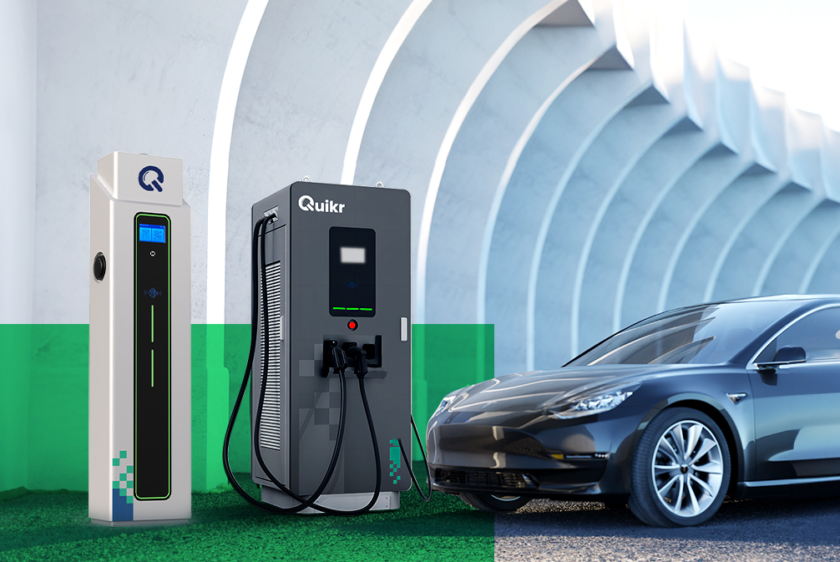The rapid adoption of electric vehicles (EVs) has made load management for EV charging a critical component of modern energy infrastructure.
With millions of EVs hitting the roads in 2025, efficiently distributing power across charging stations is essential to prevent grid overloads, reduce costs, and ensure seamless charging experiences.
This guide explores the latest advancements in dynamic load management, EV charging, cost-saving strategies, and the best smart chargers available today.
What is load management in EV charging?
Load management EV charging refers to the intelligent distribution of electrical power among multiple EVs to prevent grid overloads and optimize energy use.
Key Functions:
- Monitors real-time power demand
- Adjusts charging speeds dynamically
- Prevents circuit tripping
- Reduces peak demand charges
People Ask
What is load balancing in EV charging?
It ensures equal power distribution among multiple chargers.
What is the difference between load management and smart charging?
Load management focuses on power distribution, while smart charging optimizes charging times based on electricity rates.
What is load sharing in EV charging?
It allows multiple EVs to share a single power source efficiently.
Types of Load Management for EV Charging Stations
Static Load Management
- Fixed power allocation per charger
- Simple but less efficient
Dynamic Load Management EV Charging
- Adjusts power in real-time based on demand
- Maximizes efficiency and prevents overloads
Fixed & Average Allocation
- Divides power equally or based on preset rules
- Best for predictable charging patterns
Load Balancing vs. Smart Charging: Key Differences
| Feature | Load Balancing | Smart Charging |
|---|---|---|
| Primary Goal | Distribute power evenly | Optimize charging times & costs |
| Real-Time Adjustments | Yes | Yes |
| Energy Cost Savings | Moderate | High |
Load Sharing in EV Charging: How It Works
- Multiple EVs share a single circuit
- Power is allocated based on priority (e.g., battery level)
- Ideal for homes & workplaces with limited electrical capacity
Benefits of Load Management EV Charging
✅ Prevents Overloads – Avoids tripped circuits and blackouts
✅ Reduces EV Charging Costs – Lowers peak demand charges
✅ Enhances Grid Stability – Supports renewable energy integration
✅ Future-Proofs Infrastructure – Scales with growing EV adoption
Best EV Chargers with Load Management (2025)
1. ChargePoint Home Flex
- Adjustable power levels (16A – 50A)
- Smart scheduling & app control
2. JuiceBox Pro 40
- Wi-Fi-enabled dynamic load balancing
- Energy usage tracking
3. Schneider EV Load Management System
- Advanced power monitoring
- Ideal for commercial & fleet charging
EV Charger Load Calculation: How to Optimize Power
To avoid overloading your electrical panel:
Formula:
Total Load = (EV Charger Power) + (Other Household Appliances)Example: A 48A charger (11.5 kW) + HVAC (5 kW) = 16.5 kW total load
Schneider EV Load Management System: A Smart Solution
Schneider Electric offers advanced load management devices that:
- Monitor real-time power usage
- Automatically adjust charging speeds
- Integrate with solar & battery storage
Load Management Devices & Electrical Panel Integration
- Load management devices regulate power flow between chargers.
- Smart electrical panels (e.g., Span Panel) optimize home energy use.
Implementing Load Management in Different Settings
Residential EV Charging
- Use smart chargers with scheduling
- Install a load management device if panel capacity is limited
Commercial & Fleet Charging
- Deploy dynamic load management EV charging stations
- Prioritize charging based on fleet needs
Public Charging Stations
- Implement demand-based pricing
- Use cloud-based load balancing
Future Trends in Load Management EV Charging (2025 & Beyond)
🔹 AI-Powered Load Forecasting
🔹 Vehicle-to-Grid (V2G) Integration
🔹 Ultra-Fast Charging with Smart Load Distribution
FAQs on Load Management EV Charging
Q: Does load management slow down EV charging?
A: Only during peak demand—otherwise, it optimizes speed.
Q: Can I retrofit load management to existing chargers?
A: Yes, with add-on devices like the Schneider EV Link.
Q: How much does load management EV charging cost?
A: Solutions range from 200 for basic devices to 2,000+ for advanced systems.
Conclusion & Next Steps
Load management EV charging is no longer optional—it’s a necessity for efficient, cost-effective, and sustainable EV adoption.
Whether you’re a homeowner or a fleet operator, implementing dynamic load management can save energy, reduce costs, and future-proof your charging setup.
🚀 Ready to Optimize Your EV Charging?
👉 Contact Us at QuikRev Today!





